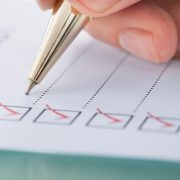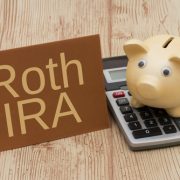Should Self-Directed IRA Investors Be Concerned About the Coronavirus?
The coronavirus, also known as COVID-19, is a new threat to the medical and financial landscape. And while we at American IRA can’t tell you much about what to do to prepare for COVID-19 when it comes to your health and wellness, there is one aspect of this virus that will affect every investor: its effects on markets. How will markets respond to this virus, a potential pandemic, and what does it mean for the Self-Directed IRA investor? Let’s look more closely at this problem.
How Self-Directed IRAs Investors Should React to New Threats
As a Self-Directed IRA administration firm, it’s not our job to tell you what kinds of investment decisions to make. In a Self-Directed IRA, you’re the one in charge. But understanding how the Self-Directed IRA works can help investors get a better handle on how they might be able to respond to unexpected financial turmoil caused by news stories like COVID-19.
- One of the most powerful concepts in all of investing is that of diversification—simply put, not putting all of your eggs in one basket. For those investors who only keep retirement money in stocks, we see just how emotionally bruising it can be to have money in the markets when there are sudden downturns like we saw at the end of February going into March. Having all of one’s eggs in one basket can lead to hasty decisions that aren’t for the investor’s own long-term benefit.
- Risk management. How well does an investor manage risks? By having a Self-Directed IRA, investors can use a variety of asset classes that may have less risk than the stock market. For example, owning precious metals within a retirement account is a powerful way to both diversify and play the risk management game.
- Owning real estate within one’s retirement portfolio gives investors a powerful hedge, as real estate is a hedge against inflation. If the value of the currency were to suddenly plunge, owning real assets like a rental property means that the cost of rent could in turn go up, ensuring a more durable long-term source of cash flow in the portfolio.
Using these concepts in a Self-Directed IRA can give an investor a better emotional grounding to feel as though they’re capable of weathering threats like COVID-19.
Retirement Planning for Beyond the Immediate-Term Future
There’s another aspect to using a Self-Directed IRA that many people who buy and sell stocks at a moment’s notice ignore: the ability to think long-term.
Long-term thinking is easier to do with a retirement account. In a Self-Directed IRA, for example, there may be penalties for withdrawing money ahead of retirement age. That means that it will de-incentivize investors from making hasty decisions because of volatility in the stock market, even when caused by news stories like COVID-19.
What results is essentially a forced plan of thinking long-term. With money tied into retirement investments, young investors would face penalties for early withdrawals. (It’s worth noting that it may be easier to withdraw after-tax contributions such as those made to a Roth IRA, but there are still penalties on the growth).
This kind of long-term thinking is essential for successful retirement investors who don’t want their individual plans to be swayed by short-term selling and fear. Retirement investing is about taking a long-term point of view. A Self-Directed IRA can be a powerful vehicle for staying the course. While a Self-Directed IRA administration doesn’t tell you how to invest, it can tell you about the benefits of a retirement account in any situation.
Interested in learning more about Self-Directed IRAs? Contact American IRA, LLC at 866-7500-IRA (472) for a free consultation. Download our free guides or visit us online at www.AmericanIRA.com.






